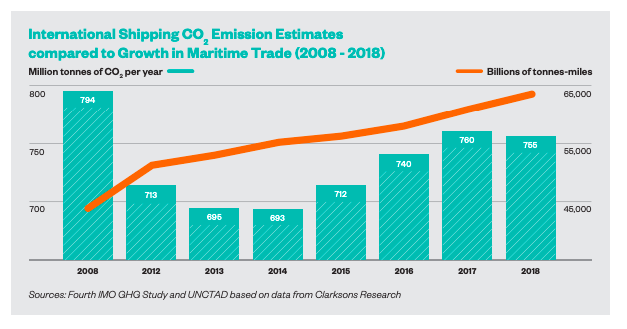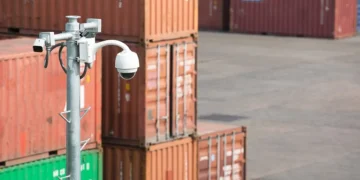A recent study on the upcoming FuelEU Maritime proposal finds that a promotion of biofuels may raise serious enforcement concerns, as a mandatory fuel standard is aimed to apply to fuels purchased also outside the EU. This could jeopardise the achievement of emissions reductions.
The introduction of a complex compliance system implying the establishment of a carbon trading scheme in addition to the EU ETS is also examined. The study was commissioned by the European Community Shipowners’ Associations (ECSA) and the International Chamber of Shipping (ICS). The study explores the efficacy and implications of potential measures, including new EU fuel standards, to help decarbonise shipping.
To remind, the FuelEU Maritime is an initiative launched in early 2021 by the European Commission with the aim to increase the use of sustainable alternative fuels in European shipping and ports and drive decarbonization and sustainability within the industry.
According to the study, prepared by Dr Edmund Hughes, Green Marine Associates Ltd., FuelEU Maritime raises a number of important issues that will require careful consideration by the EU institutions:
#1. Application of EU fuel standards outside the EU
#2. Emphasis on use of biofuels
#3. Focusing compliance on ship operators will make enforcement challenging
#4. Practicality of another carbon trading scheme (on top of ETS)
#5. Reaction of non-EU States
Unless these important issues are appropriately considered by the EU institutions, there is a risk that FuelEU Maritime could be ineffective, or even counterproductive, in supporting the global shipping sector to decarbonise completely, consistent with the ambitious CO2 emission reduction targets which have already been agreed for international shipping at the UN IMO, the study highlights. However, if the FuelEU Maritime proposal is designed in a proper way, it may contribute to addressing the barriers identified in the IMO GHG Strategy and may stimulate demand for of low and zero-carbon marine fuels which is currently negligible.
According to the study:
- There are significant challenges in enforcing EU fuel standards outside the EU’s jurisdiction.
- A standard for fuels purchased internationally would, in essence, mandate the use of biofuels by ships due to the lack of any viable alternative fuels, especially for deep sea shipping.
- The study highlights a number of outstanding issues concerning the cost, availability and specification of biofuels, as well as important questions about enforcement relating to EU’s sustainability criteria under the Renewable Energy Directive.
 Key estimates relevant to applying FuelEU Maritime to international shipping
Key estimates relevant to applying FuelEU Maritime to international shipping
• Total global shipping emissions covered: 15%
• Number of ships affected: 12,400 to 15,000
• Proportion of fleet covered registered in non-EU/EEA flag states: 67%
• Number of companies affected: 2,000 to 2,500
• Proportion of affected companies located in third countries: 50%
• Third country maritime flag States potentially affected: > 100
The European shipping sector is committed to decarbonise the shipping industry as quickly as possible. However, shipowners cannot be held accountable for the quality of fuels. This is the sole responsibility of fuel suppliers.
..says Claes Berglund, ECSA President.
Martin Dorsman, ECSA Secretary General added “We understand that the Commission wants to implement EU’s sustainability criteria to all fuels covered by the proposal but placing the legal responsibility for the fuel standards on ships does not address the substantial enforcement challenges, especially with regard to biofuels”.
Certifying non-EU fuel suppliers allowed to refuel ships internationally may imply that FuelEU Maritime would effectively regulate and potentially disrupt the international fuel market. Therefore, one of the main conclusions of the study is that the EU should ensure that the principal obligation for compliance with any new standards rests with fuel suppliers.
You wouldn’t penalise a car owner for being sold the wrong fuel at a petrol pump, yet this is exactly what will happen to shipowners with the FuelEU maritime proposal. In addition, there are legitimate concerns that FuelEU will jeopardise emissions reductions by mandating the use of biofuels, which have real-world issues for environmental sustainability.
..said Guy Platten, Secretary General of the International Chamber of Shipping
FuelEU Maritime: potential pros and cons
The study also refers to the potential advantages and disadvantages of the FuelEU Maritime initiative, notign that these will depend on the detailed regulatory proposal made by the EC
Potential advantages (+)
• Contributes to addressing the barriers identified in the IMO GHG Strategy, given that the global introduction of alternative fuels will be integral to achieving the agreed levels of ambition;
• Stimulates demand for of low and zero-carbon marine fuels which is currently negligible, so addressing the supply-demand conundrum of which one comes first;
• Builds economies of scale in the supply of low and zero-carbon marine fuels, potentially bringing down their cost so as to reduce the price spread relative to current fuels and providing greater scope for other incentives to be applied;
• Provides shipowners and operators with an encouragement to use low and zero-carbon marine fuels and so meet the increasing demands of customers looking to reduce the carbon footprint of their supply chains; and
• Supports development and global consideration of fuel standards for low and zero-carbon marine fuels.
Potential disadvantages (-)
• Risk of being in conflict with the goal-based approach to reducing the carbon intensity of shipping, reflected in the amendments to MARPOL Annex VI approved by IMO in November 2020;
• Risk of adopting fuel standards at variance to those agreed globally by IMO and ISO, with respect both to carbon factors and safety standards;
• Significant challenges of enforcing EU maritime standards among fuel suppliers outside EU jurisdiction which could jeopardise the achievement of the intended emission reductions;
• Risk of substantially disrupting the international fuel market by certifying which fuel suppliers could and which ones could not refuel ships calling at EU ports. This could effectively undermine a level playing field and could lead to a two-tier market;
• Risk of market distortion if smaller companies, and those providing non-scheduled services, are less able to have access to fuels that comply with EU standards;
• Risk of overly prescriptive emphasis on use of biofuels;
• Risk that mandating use of certain fuels, with increased costs, diverts resources from more effective CO2 reduction measures for ships;
• Risk of undermining IMO negotiations to implement the Initial Strategy on Reduction of GHG Emissions from Ships, so setting back global efforts to adopt measures for absolute emissions reduction; and
• Risk of increased political tension with third countries that could potentially lead to trade disputes if this is deemed to be interference with fuel standards adopted and enforced by non-EU States.

































































